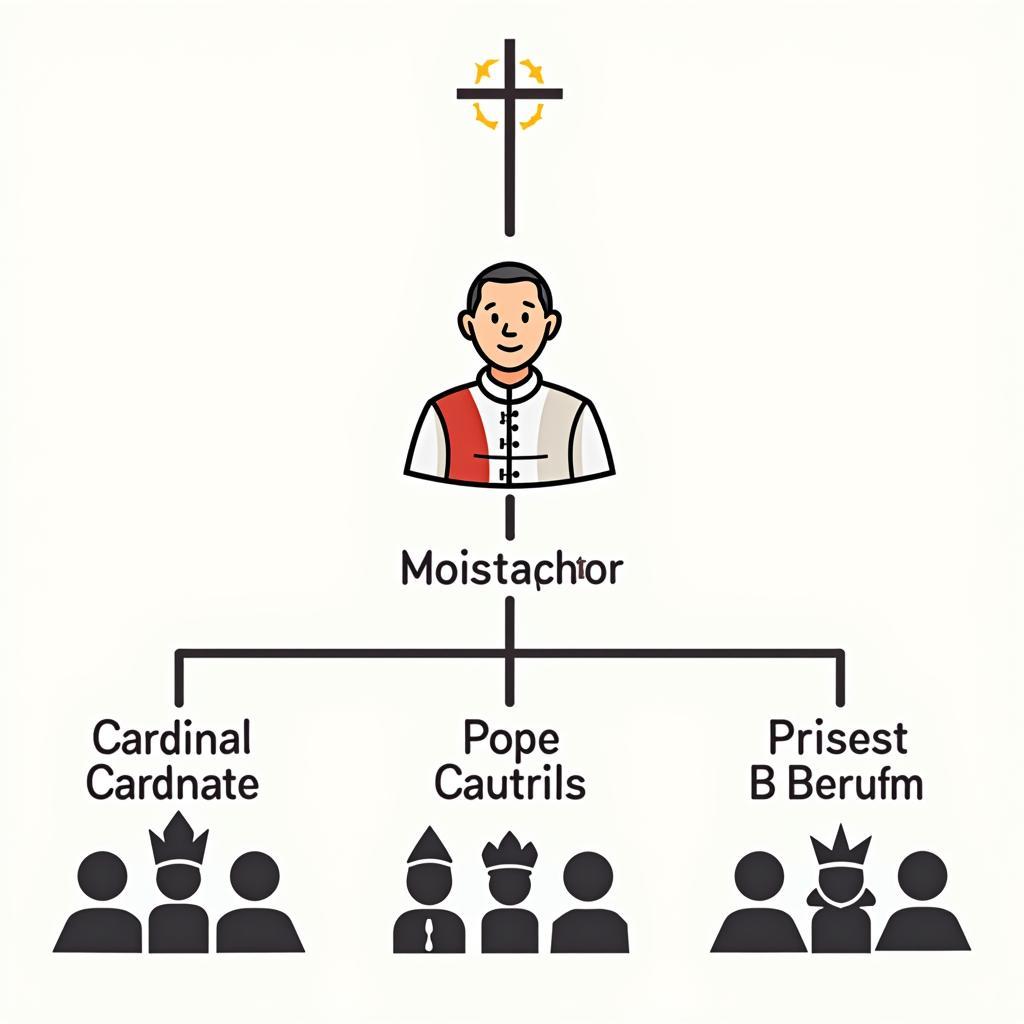The phrase “Catholic Church Secret Society” often sparks curiosity and intrigue. It conjures images of shadowy figures, clandestine meetings, and hidden agendas. While history is replete with secret societies, some with ties to religious institutions, it’s crucial to approach this topic with a discerning eye.
Separating Fact from Fiction: The Reality of Catholic Organizations
The Catholic Church, with its rich history and global reach, has always been a fertile ground for various organizations. These groups, often dedicated to charitable works, spiritual development, or social justice, are an integral part of the Church’s fabric. However, it’s essential to distinguish between these transparent organizations and the notion of clandestine societies operating within the Church.
Understanding the Nature of the Catholic Church
The Catholic Church operates on principles of transparency and accountability, particularly in modern times. Its hierarchical structure, with the Pope at its helm, emphasizes open communication and adherence to doctrine. While individuals within the Church may hold different views, the institution itself does not endorse or condone secrecy in its operations.
 Catholic Church Hierarchy
Catholic Church Hierarchy
Debunking the Myth of Secret Societies
The idea of powerful, influential secret societies within the Catholic Church is a recurring theme in popular culture. Novels, movies, and conspiracy theories often portray these fictional entities as wielding significant influence, even controlling world events. However, there’s no credible evidence to support these claims.
While some historical events, such as the suppression of the Knights Templar in the 14th century, involved accusations of secrecy and heresy, these were often politically motivated and lacked substantial proof. The Catholic Church, like any large organization, has faced internal conflicts and controversies throughout its history. Still, attributing these to the machinations of secret societies is a gross oversimplification.
Promoting Understanding and Dialogue
The allure of conspiracy theories, especially those involving powerful institutions like the Catholic Church, is undeniable. However, it’s crucial to approach such narratives with critical thinking and healthy skepticism. Spreading unfounded rumors and engaging in speculation without evidence can be detrimental, fostering distrust and division.
Instead of perpetuating conspiracy theories, let’s focus on promoting understanding and dialogue. Engaging in respectful conversations, seeking factual information, and challenging our own biases are essential steps in fostering a more peaceful and tolerant world.
Building Bridges, Not Walls
As individuals committed to peace and understanding, it’s our responsibility to challenge misinformation and promote factual accuracy. Instead of viewing the world through the lens of suspicion and distrust, let’s strive to build bridges of communication and empathy.
Remember, the Catholic Church, like any other religious institution, is comprised of individuals with diverse beliefs and perspectives. Let’s engage with each other respectfully, fostering a spirit of understanding and cooperation.
Conclusion
The notion of secret societies operating within the Catholic Church is a topic that requires careful consideration and a commitment to truth. While the allure of the unknown is undeniable, it’s crucial to ground our understanding in facts and evidence. Let’s move beyond sensationalized narratives and work towards fostering a world where dialogue, respect, and understanding prevail.
Need further clarification or resources on interfaith dialogue and promoting peace?
Contact us:
Phone: +44 20 4385 4663
Email: [email protected]
Address: Zone 34, Bac Giang, 260000, Vietnam
Our dedicated team is available 24/7 to assist you.